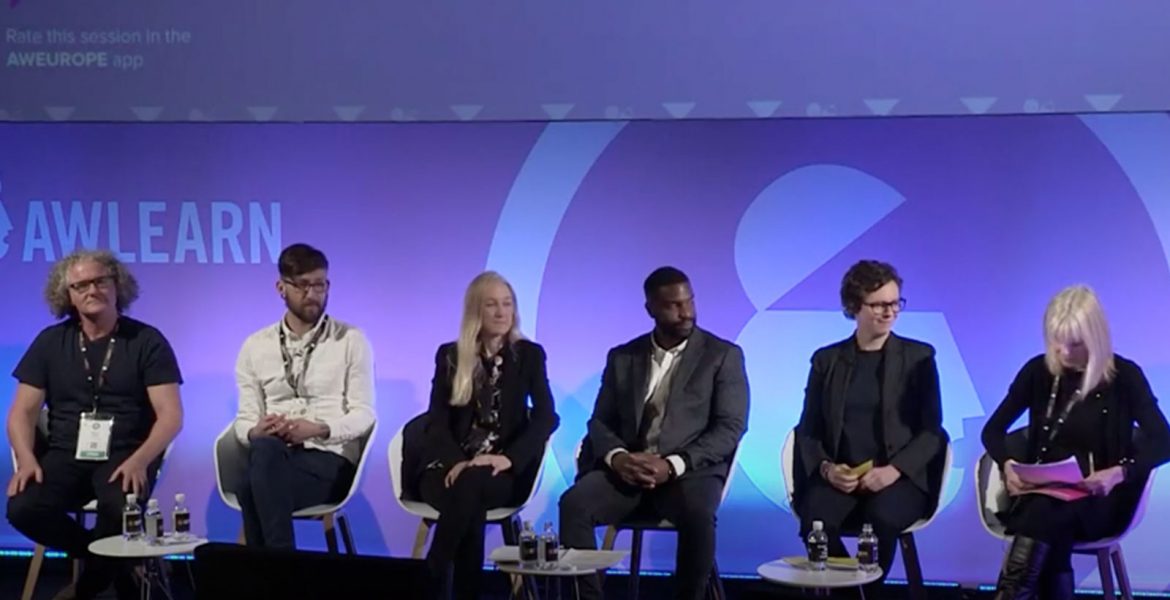It’s been a long time coming, but neurodiversity is finally having its moment on the diversity agenda, alongside vital topics of gender and racial equality, disability, ageism and mental health.
It goes without saying that no one understands this area as much as the people who experience it first-hand.
Today, Advertising Week hosted a vital and lively conversation on the subject. The panel was chaired by Kate Burnett, MD of DMA Talent, and included Now’s very own Laura Chamberlain, MD and proud dyslexic, Wayne Deakin, the witty and outspoken ECD of Huge, who is on the autistic spectrum, Akama Ediomi-Davies, Director, Global Solutions, Xaxis, another brilliantly articulate dyslexic, Lucy Hobbs, freelance creative director and founder of The Future is ND, who has ADHD, and finally Matt Trerise, an autism consultant.
I thought about cutting this article down. But I think everything that was said today is important for us all. As decent human beings, but also as people in the business of creativity. And we can do something about it right now, this week, today.
There were three big themes that I picked up:
- We could all do a lot more to understand, empathise and enable the neurodivergent. As Laura Chamberlain said, ‘I have spent twenty years hiding the fact that I am dyslexic.’ And here’s a depressing fact: only 16% of autistic people are currently employed in the UK.
- The more you understand this area, the more you realise that it is a no-brainer for a creative industry to encourage and accommodate diverse thinkers. ‘Innovation has always come from the edges’ was how Wayne Deakin eloquently put it.
- And embracing neurodiversity is good for all of us. Who doesn’t want a work culture that encourages listening, and helps people to work how they work best?
There were so many good things said that I will get out of the way of the panel and let you hear their words…
On company culture:
Laura Chamberlain: ‘The emphasis has historically been on strong, assertive leadership. We need to create a culture that’s about leadership by listening.’
Akama Ediomi-Davies: ‘Businesses need to focus less on the method by which they deliver work, and more on the output. That’s a cultural shift that needs to be made.’
On companies actively encouraging the conversation:
Laura Chamberlain: ‘We need to help people feel able to ask for what they need to thrive.’
Lucy Hobbs: ‘Discuss it; then you understand what people need. Most people know what they need to work their best.”
On the workspace:
Matt Trerise: ‘Simple things like flexible workspaces make a huge difference. Open plan can be hugely stressful, so a decent sensory environment like quiet areas helps.’
On how companies can benefit:
‘If you hire the same sort of people, you’re going to get the same sort of results. A beautiful mixed-up palette of colours creates beautiful work.’ Wayne Deakin.
On recruitment:
‘What recruiter wouldn’t want ‘creative problem solving and resilience on a candidate’s CV? All the traits associated with neurodiversity.’ Laura Chamberlain.
Akama Ediomi-Davies: ‘We need to rethink the value of the traditional interview. For example why not tell people what questions you’re going to ask before the interview?’
‘If we are testing who is a good talker, you’re going to get good talkers. Who’s going to do the work?’ Lucy Hobbs.
‘We have been obsessed with ‘resourcing’ in our industry, when we should be thinking about casting.’ Wayne Deakin.
Laura Chamberlain: ‘Our industry is the ultimate team sport. Hire for the job, and think of the team around them.
We are in the ideas business. And the best ideas come from the convergence of interesting minds.

